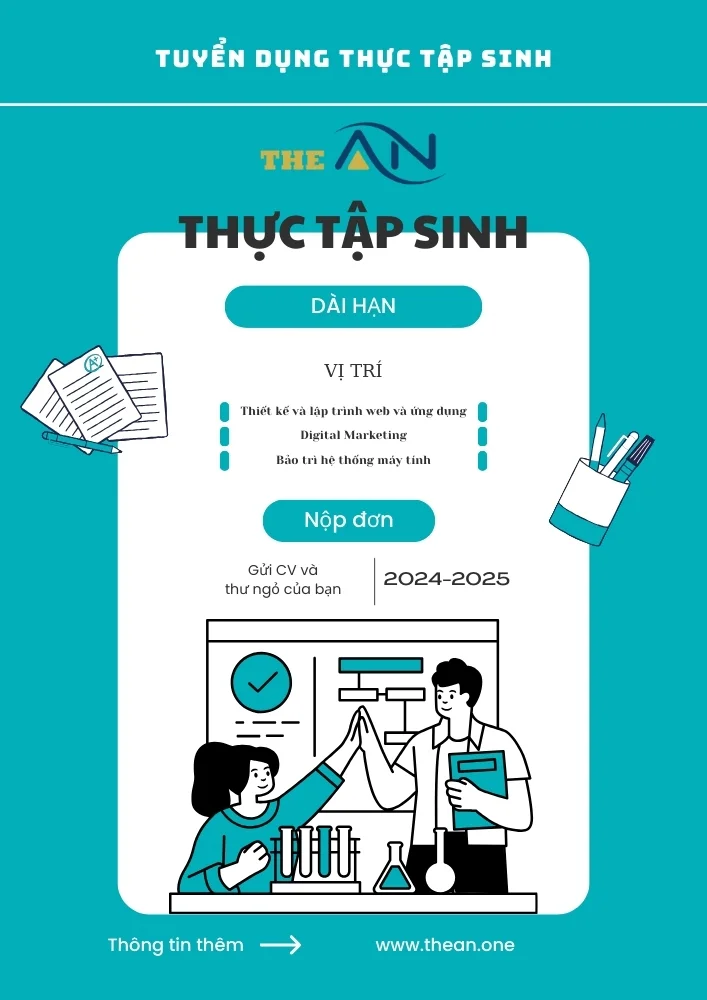What Is an Adverb? Definition, List & Examples

In this article, we will learn about “Adverbs“. A verb, adjective, another adverb, determiner, clause, preposition, or sentence is typically modified by an adverb. Adverbs often answer questions like “how,” “in what way,” “when,” “where,” and “to what extent” by expressing things like method, place, time, frequency, degree, level of certainty, etc.
Table of Content
- What is an Adverb?
- Types of Adverbs
- Examples of Adverb
- How to Use Adverbs with Sentences
- Adverb Exercises
- FAQs on Adverb
What is an Adverb?
A word that modifies verbs, adjectives, or other adverbs is known as an adverb. It provides extra details about the sentence’s verb. Every word starts with at least one syllable. Adverbs can provide more specific information on time, method, frequency, and other topics.
Definition of an Adverb
Adverbs are words or phrases that provide additional information to a verb, adjective, or another adverb. Adverbs often answer questions such as “How?”, “When?”, “Where?”, “to what extent?”, or “under what conditions?”. Adverbs give information about the verb and action in the sentences. It plays an important role to enhance the meaning of a sentence and provides more details about the action or situation described.
For Example:
- I will call you.
- I will call you shortly.
In the first sentence, it is unclear when I will contact you, but in the second sentence by using the word “Shortly”, the sentence becomes more apparent.
Types of Adverbs
There are mainly nine types of Adverbs:
- Adverb of Manner
- Adverb of Place
- Adverb of Time
- Adverb of Quantity / Range
- Adverb of Number and Frequency
- Adverb of Affirmation or Negation
- Adverb of Reason
- Interrogative Adverbs
- Relative Adverbs
Adverb of Manner
Those adverbs which show the method of “to be an action” are called the Adverbs of Manner.
Adverb of Manner Example
Fast, Hard, slow, bravely, foolishly, wisely, loudly, soundly, badly, carefully, fluently, beautifully, clearly, etc.
Sentence example:
- The lion ran fast
- She works hard
- He fought bravely
Adverb of Time
Those adverbs which show time are called the Adverb of Time.
Adverb of Time Examples:
Today, Tomorrow, yesterday, last night, last day, last week, etc.
Sentence example:
- They saw me yesterday
- Parul arrived late
- Radheshyam will arrive soon.
Adverb of Place
Those adverbs that express place are called Adverbs of Place.
Adverb of Place Example:
Here, There, away, down, anywhere, everywhere, above, below, etc.
Sentence example:
- She was sitting here.
- My Bacharwar lived there.
- She looked up.
Adverb of Number
Those adverbs which express the frequency number of “to be an action” are called Adverbs of numbers.
Adverb of Number Example:
Once, twice, thrice, again, firstly, secondly, etc.
Sentence example:
- The farmer called again.
- She always tries to do her best
- SSC student frequently comes unprepared.
Adverb of Quantity
Those Adverbs express quantity, the extent of the adjective, and an adverb called Adverb of Quantity.
Adverb of Quantity Examples:
Too, very, quite, enough, rather, fairly, etc.
Sentence example:
- My daughter was too careless
- She was very tired
- The fruits are almost ripe.
Adverb of Reason
Those adverbs which express the sense of reason are called the Adverbs of Reason.
Adverb of Reason Example:
Hence, Therefore, Consequently, etc.
Sentence example:
- She, therefore, left the school
- He was therefore fined
Adverb of Affirmation or Negation
Those adverbs which express the sense of affirmation or negation are called the Adverbs of Affirmation or Negation.
Adverb of Affirmation or Negation Example:
Not, Surely, certainly, indeed, not at all, etc.
Sentence example:
- Our hero is certainly alive
- Probably he will win.
Interrogative Adverbs
Those adverbs which are used to ask questions are called Interrogative Adverbs.
Interrogative Adverbs Example
Chhatrapati: When, How, Where, etc.
There are 6 types of Interrogative Adverbs
- Interrogative Adverbs of Time – Example: When will you return?
- Interrogative Adverbs of Place – Example: Where do you live?
- Interrogative Adverbs of Numbers – Example: How many boys were present there?
- Interrogative Adverbs of Manner – Example: How are you today?
- Interrogative Adverbs of Quantity – Example: How much did you pay for this iPhone?
- Interrogative Adverbs of Reason – Example: Why are you late for this class?
Relative Adverbs
Those Interrogative adverbs which are used to add two sentences are called Relative Adverbs. Relative adverbs express the relation between “obvious” and “non-obvious” Antecedents.
Relative Adverbs Sentence example
- This is the place where my grandfather lived.
- Do you know what is the price of this laptop?
Examples of Adverb
These examples cover a range of adverbs that describe emotions (happily, sadly), frequency (always, never), time (yesterday, today), degree (well, badly), location (here, there, everywhere), and manner (quickly, slowly). Adverbs help provide more details and context to a sentence. It enhances our understanding of the actions that are performed.
| Adverb of Manner | Quickly, slowly, carefully, loudly, quietly, easily, hardly. |
|---|---|
| Adverbs of Place | Here, Everywhere, there |
| Adverbs of Time | Yesterday, today, now, then, soon, eventually |
| Adverbs of Quantity/Range | Almost, Entirely |
| Adverbs of Number and Frequency | Once, Frequently |
| Adverbs of Affirmation/Negotiation | Certainly, Never |
| Adverbs of Reasons | Therefore, Consequently |
| Interrogative Adverbs | When, Where |
| Relative adverbs | Where, When |
Adverb Examples with Sentences
In this section, we will see how different adverbs are used in sentences.
1. Adverb of Manner
- My brother-in-law behaved foolishly.
- Chhatrapati Shivaji fought bravely against the Mughals.
2. Adverb of time
- Barsha arrived late to the party.
- She comes here daily to eat breakfast.
3. Adverb of Place
- Hope looks above, doubt looks below.
- Come into this room.
Adverb of numbers
- Every man often makes mistakes.
- Our team always try to do our best.
5. Adverb of Quantity
- My father was fully prepared for his interview.
- She is quite wrong
6. Adverb of Reason
- You, therefore, left school.
- Consequently, he was sent to Toronto.
7. Adverb of Affirmation or negation
- Surely they are right.
- I do not know her.
8. Interrogative Adverbs
- When will you return?
- Why are you late?
9. Relative adverbs
- This is where good monks lived.
- Do you know when they will come?
How to Use Adverbs with Sentences
The following are the ways by which one can use adverbs in sentences
1. Placing Adverbs in a Sentence
- Use an adverb to describe a verb
- Modify an adjective with an adverb
- Pair an adverb with an adverb
- Use an adverb to introduce a sentence
- Connect independent clauses with conjunctive adverbs
2. Learning the Rules of Adverbs
- Pay attention to the degree of the adverb.
- Pay attention to the position
- Cut out redundant adverbs
Adverb Exercises
Fill in the blanks with the suitable “Adverb”
Q1. He has given me ……………… a lot; I don’t think I can spend so much. (rather, fairly)
Answer: Rather is used here.
Q2. She was bold ………… to catch the lion. (very, enough)
Answer: Enough is used here.
Q3. My wife’s health is …………. good. (too/ very)
Answer: Very is used here.
Q4. I will stay there ___________ in winter. (sometimes/ some time/ sometimes)
Answer: Sometimes is used here.
Q5. There was ……………. an intelligent girl to solve this question. (no/ not)
Answer: not is used here.
Find out the error part of the following sentences
Q1. He took (1) / coffee and (2) / said that (3) / it tasted sweet. (4) / No Error (5).
- 1
- 2
- 3
- 4
- 5
Answer: 4
Solution: Replace “sweetly” with sweet because one can not use adverbs after adjectives such as taste, feel, seem, appear, look, or smell.
Q2. He does not hardly (1)/knows what (2)/ happened yesterday. (3)/ No error (4)
- 1
- 2
- 3
- 4
Answer: 1
Solution: One can not use a negative word not before an adverb hardly because hardly is already gives us a sense of negation.
Q3. It was most (1)/ unfortunate that she (2)/ died at the (3)/ early age of 25 (4)/ No error (5)
- 1
- 2
- 3
- 4
- 5
Answer : 4
Solution: Early can not be used before the period because the age of 25 also gives us a sense of early.
Q4. She is too much beautiful (1)/ so most of the boys of my hostel (2)/ run after her and (3)/ want to influence her (4)/ No error (5)
- 1
- 2
- 3
- 4
- 5
Answer: 1
Solution: too much beautiful >> much too beautiful
Q5. He gave (1)/a vivid account (2)of his life (3) as a fighter pilot. (4)/ No error (5)
- 1
- 2
- 3
- 4
- 5
Answer: 2
Solution: vividly >> vivid
FAQs on Adverb
A word that modifies verbs, adjectives, or other adverbs is known as an adverb. It provides extra details about the sentence’s verb. Every word starts with at least one syllable. Adverbs can provide more specific information on time, method, frequency, and other topics.
There are mainly nine types of Adverbs
- Adverb of Manner
- Adverb of Place
- Adverb of Time
- Adverb of Quantity / Range
- Adverb of Number and Frequency.
- Adverb of Affirmation or Negation
- Adverb of Reason
- Interrogative Adverbs
- Relative Adverbs
- Adverbs are typically created by adding the suffix -ly to adjectives. The adverb ‘ slowly’ is created by adding the suffix -ly to the adjective.
- If the adjective ends in the letter -y, then change the letter -y to -i and add –ly to form an adverb:
happy → happily
- The slow turtle crosses the road.
- The turtle slowly crosses the road.
Adverbs that join two clauses together are known as conjunctive adverbs. They are also utilized to demonstrate relationships such as cause and effect, contrast, and sequence. Conjunctive adverbs can be moved around in the sentence or clause in which they appear, just like other adverbs.
Yes Quickly is an adverb. “Quickly” is used in the sense of “rapidly”, “fast”, and “after a short time” as an adverb.
For Example:
1) Go there Quickly.
2) Do it Quickly.
Adverbs are used in sentences to modify verbs, adjectives, or other adverbs. They provide additional information about how, when, where, or to what degree an action or quality occurs. Adverbs often answer questions like “how,” “when,” “where,” or “to what extent” in a sentence.
To identify an adverb, look for words that describe how, when, where, or to what extent an action or quality occurs in a sentence. Adverbs often end in “-ly,” but not always. They provide additional information about verbs, adjectives, or other adverbs.
Adverbials are words, phrases, or clauses that function as adverbs in a sentence. They provide information about how, when, where, or to what extent an action occurs. Adverbials can modify verbs, adjectives, or other adverbs, adding detail and context to a sentence. Examples of adverbials include adverbs (e.g., quickly), adverbial phrases (e.g., in the morning), and adverbial clauses (e.g., because she was tired).
- Quickly: She ran quickly to catch the bus.
- Very: It’s very hot outside today.
- Well: He plays the piano very well.
- Now: We should leave for the movie now.
- Never: She never arrives late for work.
- Here: The keys are right here on the table.
- Yesterday: They went shopping yesterday.
- Too: The coffee is too hot to drink.
- Almost: We’re almost finished with the project.
- Really: Are you really coming to the party?
These adverbs modify verbs, adjectives, or other adverbs in the sentences, providing additional information about how, when, where, or to what extent an action or quality occurs.
Quý anh/chị đang tìm kiếm một doanh nghiệp uy tín cung cấp dịch vụ Công Nghệ Thông Tin như Thiết kế và lập trình website, Digital Marketing, hoặc dịch vụ Bảo trì và chăm sóc hệ thống máy tính, ...? Đừng ngần ngại hãy liên hệ với The ÂN qua số điện thoại (+84).326.418.478 để được tư vấn cụ thể, hoặc liên hệ qua mẫu tin.
Các thông tin nổi bật khác:









